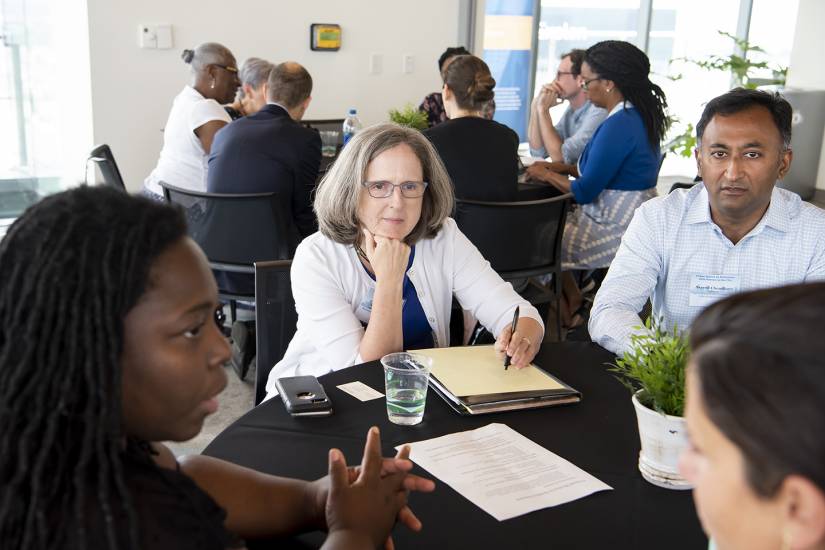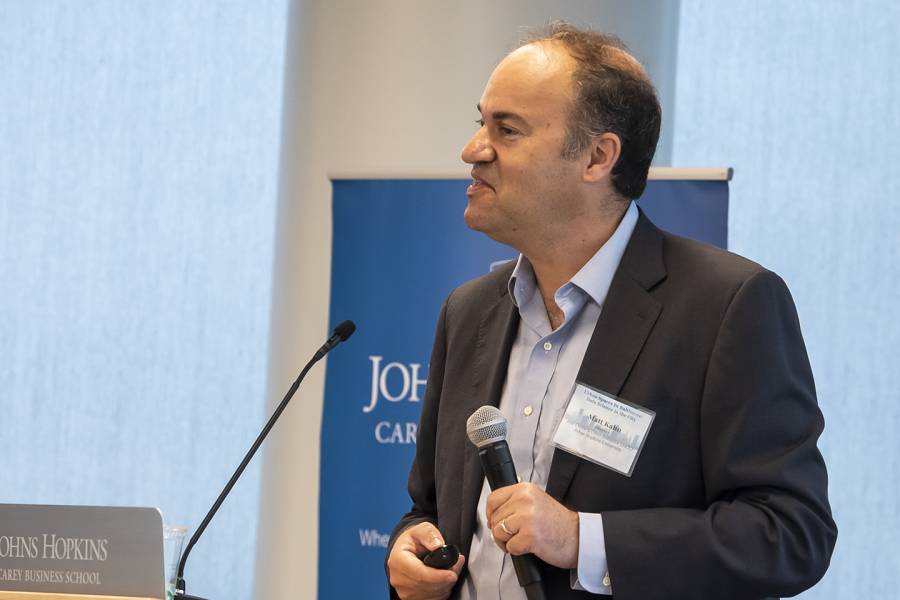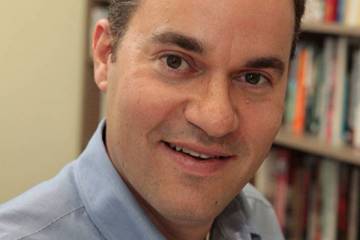When data science unites successfully with city policy, the results are a bounty of practical and even life-saving solutions to urban challenges. But to get there, the first step is reaching across a great gulf: the language barrier between academia and government, experts said during a Johns Hopkins symposium Tuesday.
"An awful lot of researchers don't realize the extent to which their vocabulary has become largely unintelligible to normal human beings," said Alan Mallach, senior fellow of the national nonprofit Center for Community Progress who previously served as housing chief for Trenton, New Jersey. He delivered a keynote address at the event.
"The onus is really on the research and academic community," he said, "to reach out to the world of practice and demonstrate that they can be useful and productive and trusted."
Hosted by the Institute for Data Intensive Science and Engineering, the inaugural symposium, titled "Urban Spaces in Baltimore: Data Science in the City," highlighted several productive research partnerships between Johns Hopkins and Baltimore City designed to address challenges such as HIV/AIDS, blighted properties, and the effects of climate change.

Image caption: The symposium included research presentations and breakout conversations focusing on different approaches to solving urban issues
Image credit: Larry Canner for Johns Hopkins University
The event also marked a debut appearance of Matthew Kahn as new director of the university's 21st Century Cities Initiative at Johns Hopkins. Kahn, who recently joined Hopkins as a Bloomberg Distinguished Professor of economics and business, described 21CC as "a think tank focused on urban issues, urban economic growth, and opportunities for all," adding that it is uniquely positioned to support data-centered approaches for developing policy solutions for cities.
"I want one of our goals to be to act as matchmaker, … to bring academic ideas to the marketplace," he said.
Kahn said 21CC's research will focus on several issues in Baltimore, including crime, upward mobility, pollution, and small businesses.
One collaboration featured at the symposium was an ongoing project to track vacant properties in the city, a team effort co-led by the Housing Authority of Baltimore City and Johns Hopkins engineers. Tamás Budavári, the Whiting School professor who leads that's program's research, has been described in Wired as "the astrophysicist who wants to help solve Baltimore's urban blight."
According to Michael Braverman, Baltimore's housing commissioner, data from Budavari's team has helped pinpoint buildings so hazardous they pose a threat to human life.
"When we have an ongoing relationship … having a research partner like Johns Hopkins can sometimes save lives," Braverman said.
Posted in Science+Technology, Politics+Society
Tagged 21st century cities, baltimore city, idies, urban policy, matthew kahn










